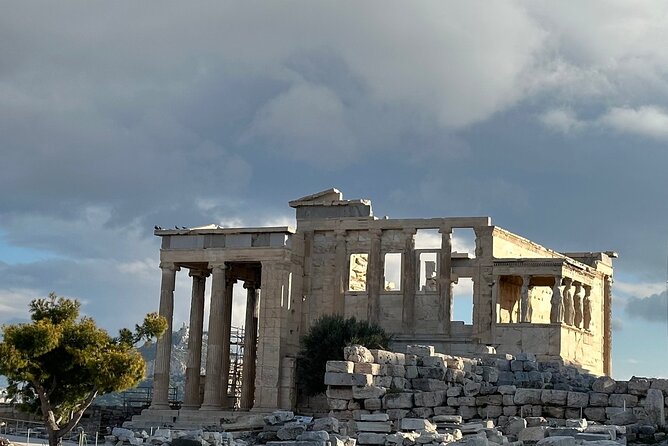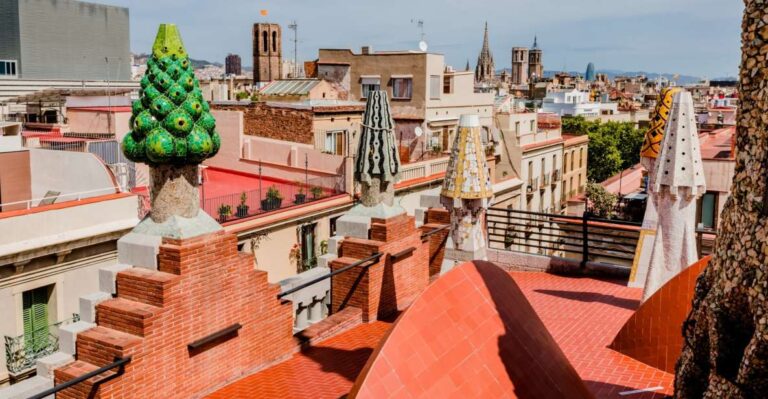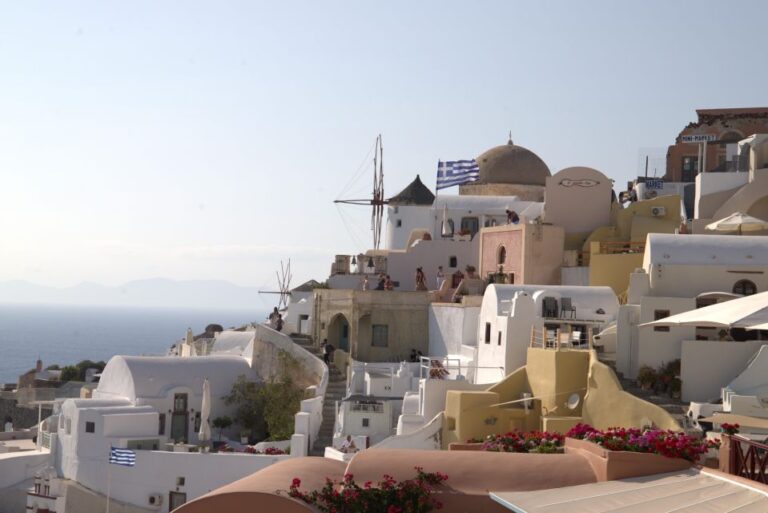Explore the very birthplace of democracy on this captivating Acropolis and Agora tour in Athens. Over three hours, you’ll marvel at iconic landmarks like the Parthenon while gaining insights into the political, economic, and social significance of these ancient sites. Uncover the enduring influence of Athenian democratic principles and how they’ve shaped modern governance. Whether you’re a history buff or simply curious about the origins of democracy, this small group tour offers a unique opportunity to learn about the very foundations of Western civilization. Where will this journey take you?
Key Points

- The tour explores the Acropolis and Agora, the birthplace and center of Athenian democracy, highlighting key architectural and historical remnants.
- Visitors gain insights into the core concepts of Athenian democracy, including citizen participation, equality under the law, and accountability of leaders.
- The tour examines the Agora’s significance as a marketplace and venue for political debates, showcasing the integration of commerce and self-governance.
- Influential figures like Pericles, Solon, and Cleisthenes are discussed, as their reforms and contributions helped shape the foundations of Athenian democracy.
- The tour provides opportunities to compare ancient and contemporary democratic principles, highlighting both continuities and divergences in the evolution of democratic systems.
Tour Overview
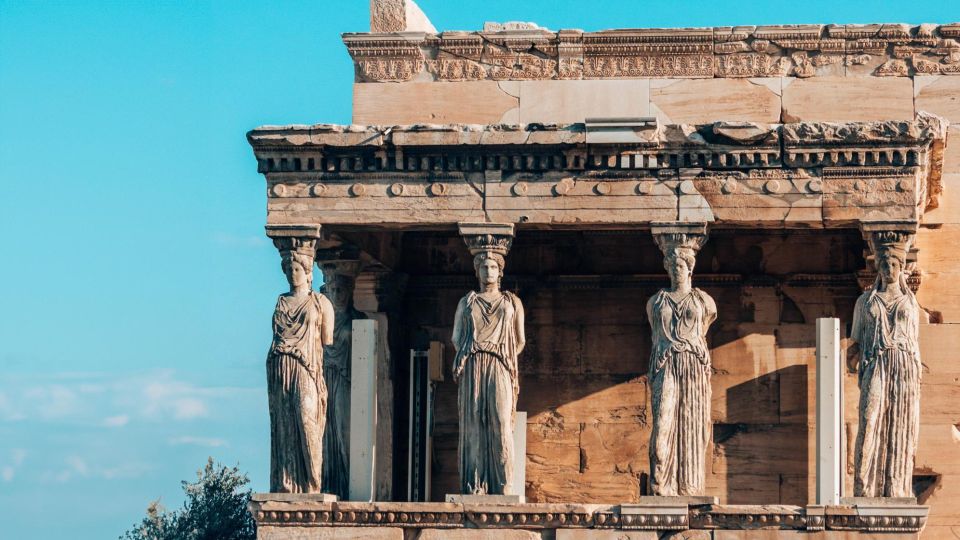
The ‘The Path to Democracy: Acropolis & Agora Tour‘ offers visitors a comprehensive exploration of Athens’ iconic landmarks, delving into the birthplace of democracy.
Priced at $73.38 per person, this 3-hour small group tour is available in English and French. Cancellation is free up to 24 hours in advance, ensuring flexibility.
The meeting point is at the Holy Church of Aghia Sophia on Dionysiou Areopagitou Street, providing a convenient starting point.
With highlights including the Parthenon, Odeon of Herodes Atticus, and Ancient Agora, this tour promises an engaging and enlightening experience for those seeking to understand the historical significance of ancient Athenian democracy.
Acropolis Highlights
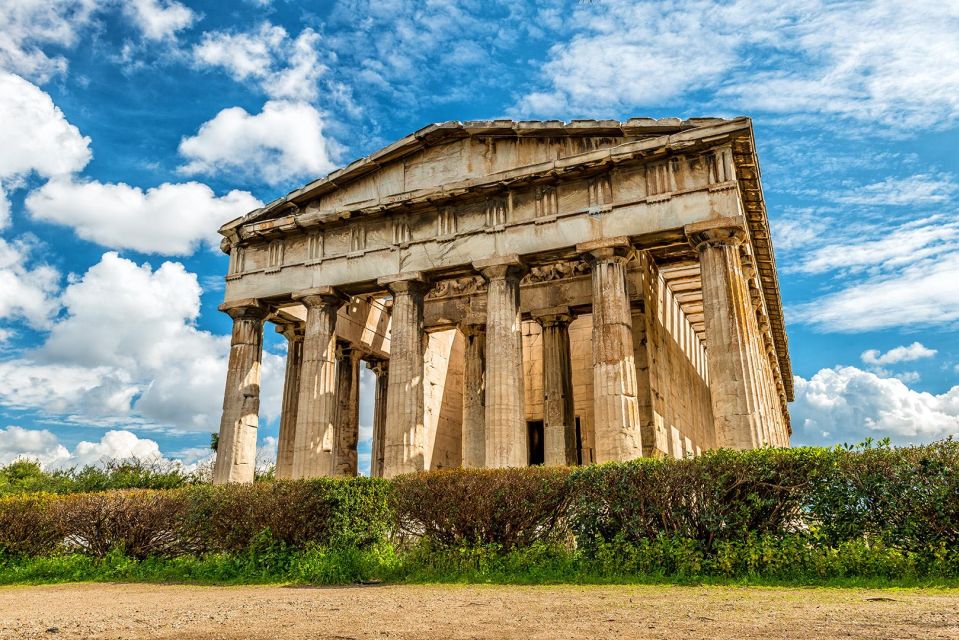
As the focal point of the Acropolis tour, visitors will explore the Parthenon, the iconic temple dedicated to the goddess Athena, during the first hour of the experience. They’ll marvel at the temple’s magnificent architecture and learn about its significance as a symbol of ancient Athenian power and the birthplace of democracy.
The tour then takes visitors to the Odeon of Herodes Atticus, the Propylaea, the Erechtheion, and the Temple of Athena Nike, each offering a unique glimpse into the rich history and cultural heritage of the Acropolis.
| Acropolis Highlights | Duration | Significance |
|---|---|---|
| Parthenon | 1 hour | Symbol of ancient Athenian power and democracy |
| Odeon of Herodes Atticus | 15 minutes | Impressive ancient theater |
| Propylaea | 15 minutes | Monumental gateway to the Acropolis |
Ancient Agora Highlights
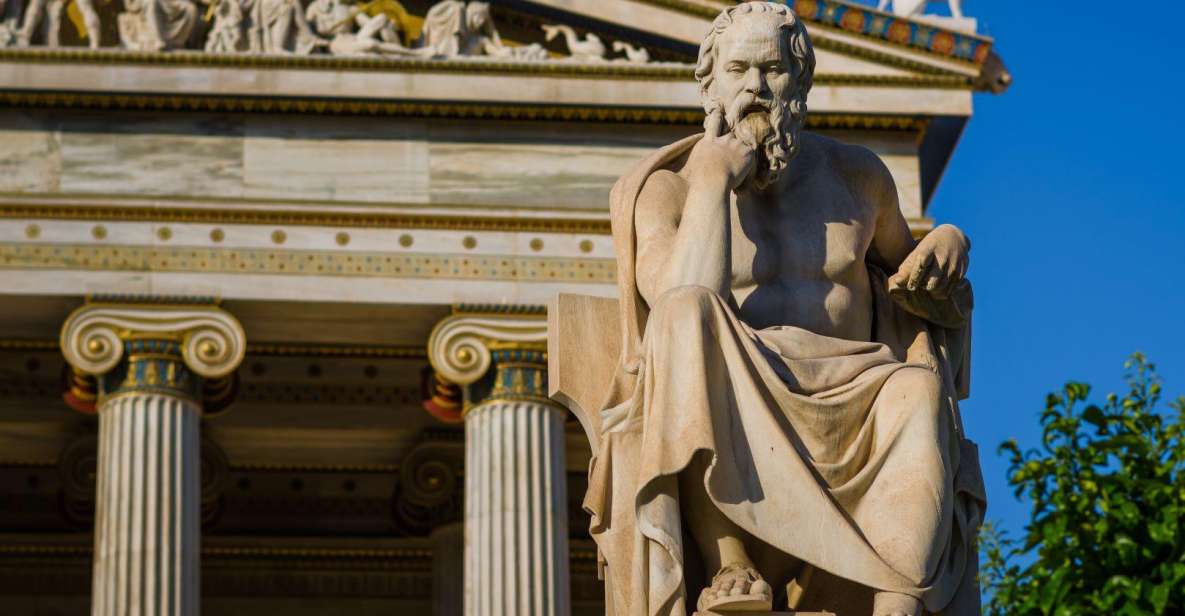
After exploring the grandeur of the Acropolis, the tour then takes visitors to the Ancient Agora, the political, commercial, and administrative heart of ancient Athens. Here, they’ll discover the Temple of Hephaestus, a remarkably well-preserved Greek temple that offers a glimpse into the city’s religious and civic life.
The Ancient Agora tour highlights include:
- Learning about the historical significance of the Ancient Agora as the center of democracy, commerce, and social life in ancient Athens.
- Admiring the Temple of Hephaestus, one of the best-preserved ancient Greek temples, which provides insights into the religious practices of the time.
- Exploring the ruins and remnants that showcase the Agora’s role in the political, economic, and cultural development of the city-state.
Democracy Birthplace
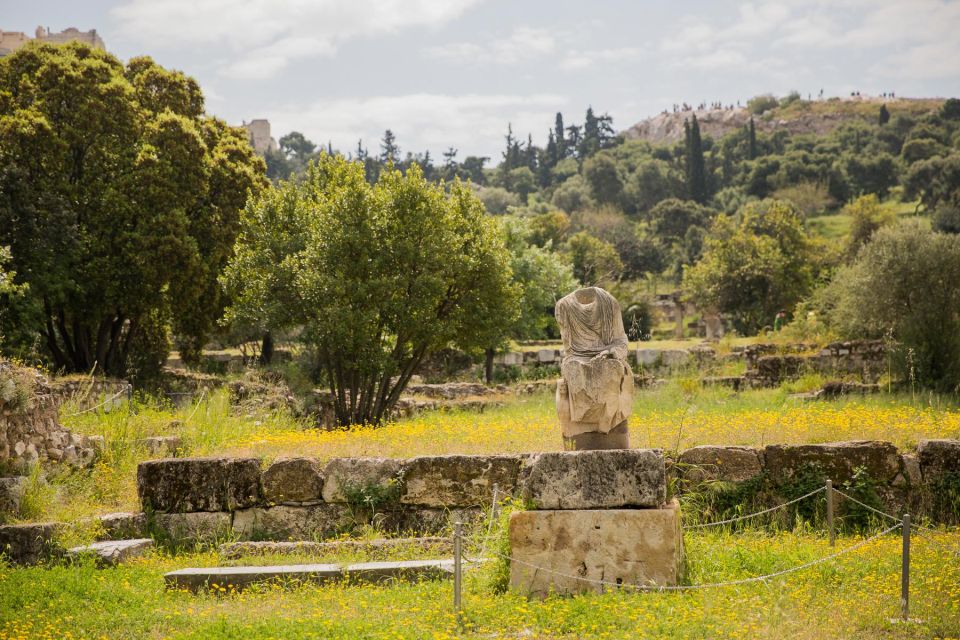
Established by ancient Greeks, particularly Athenian democracy, the Acropolis and Ancient Agora were the birthplace of democracy, where the meaning of ‘demokratia’ (people-power) and its implications were first realized.
This historic site was the center of political, commercial, and administrative significance, shaping the foundations of self-governance.
Visitors can explore the remnants of this ancient system, learning about the key figures and events that defined Athenian democracy.
Athenian Democracy Meaning
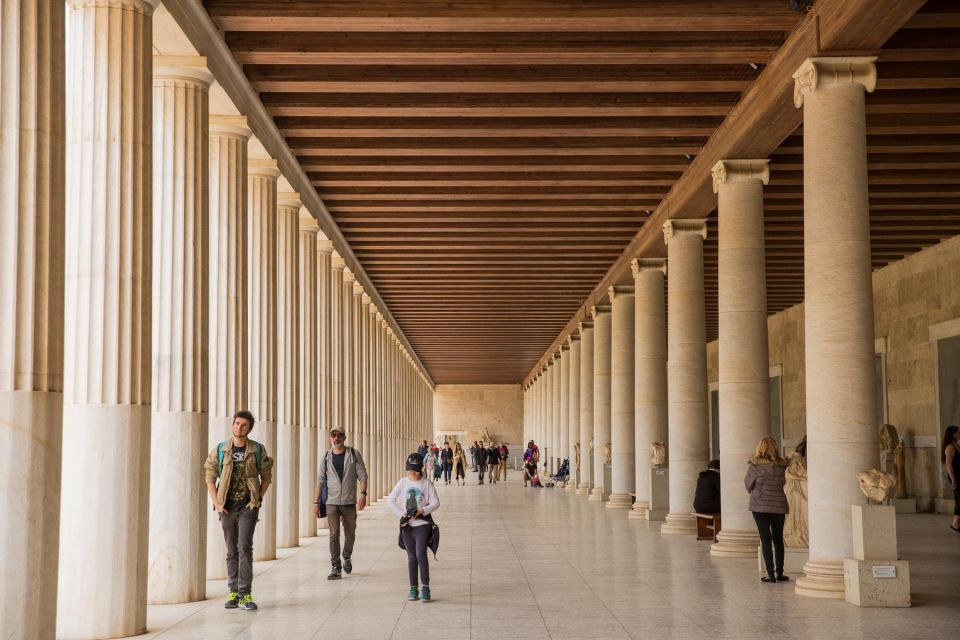
The ancient Greeks, particularly those in Athens, pioneered the concept of ‘demokratia’ or ‘people-power’, a radical notion that challenged traditional forms of governance and paved the way for self-rule.
At the heart of this system were key principles and values that shaped the political, commercial, and administrative significance of the Acropolis and Ancient Agora. These included:
- Citizen participation in decision-making processes
- Equality under the law and equal rights for all
- Accountability of leaders to the people
Through this tour, visitors can explore the physical spaces that embodied the spirit of Athenian democracy and gain a deeper understanding of its enduring influence on modern political systems.
Agora’s Significance
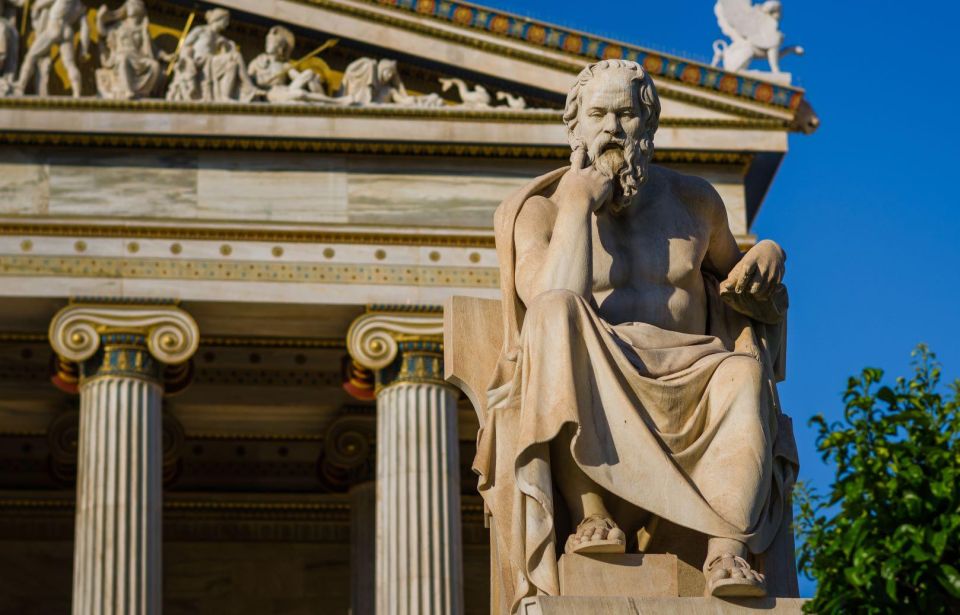
In ancient Athens, the Agora served as the central hub for the city’s political, economic, and social activities, embodying the core principles of Athenian democracy.
As the primary marketplace and gathering place, the Agora was where citizens actively participated in the democratic process, debating issues, electing officials, and shaping the direction of the city-state.
The buildings and structures within the Agora, such as the Temple of Hephaestus, weren’t merely functional but also reflected the values of the Athenian democratic ideal.
Historical Figures & Events
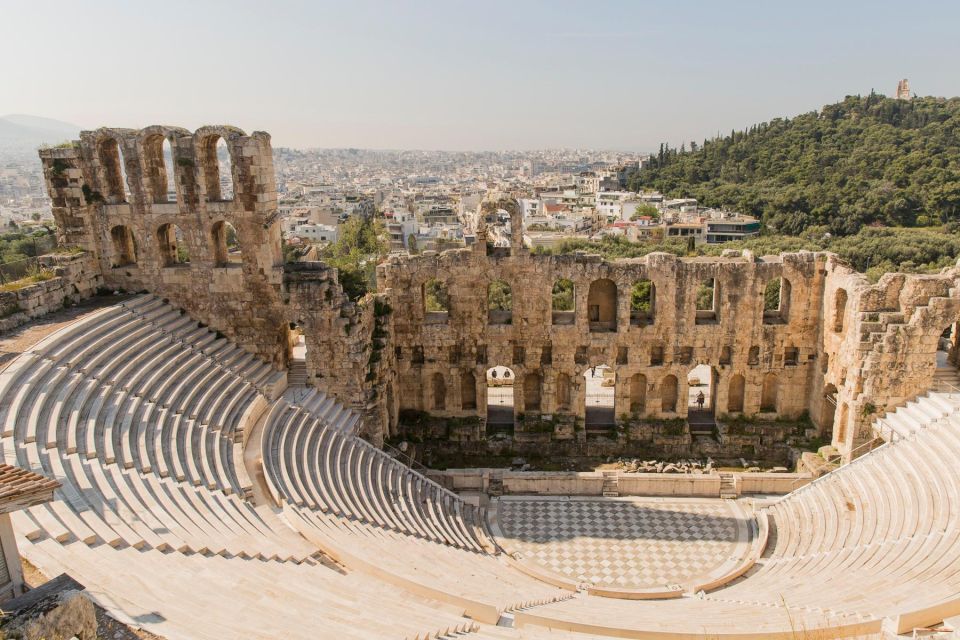
Prominent historical figures like Pericles and Solon spearheaded the development of Athenian democracy, introducing key reforms that empowered citizens and transformed the city-state’s political landscape.
Pericles, in particular, is credited with establishing the world’s first known democracy, where citizens actively participated in legislative and judicial processes.
Key events that shaped ancient Athenian democracy include:
- The reforms of Solon, which abolished debt slavery and redistributed political power.
- Cleisthenes’ introduction of the Athenian Constitution, which expanded citizen participation and voting rights.
- The hotel of the Ekklesia, or the Athenian assembly, where citizens gathered to debate and vote on important issues.
These pivotal figures and events laid the foundations for Athenian democracy, influencing political thought and systems worldwide.
Comparing Ancient & Contemporary Democracy
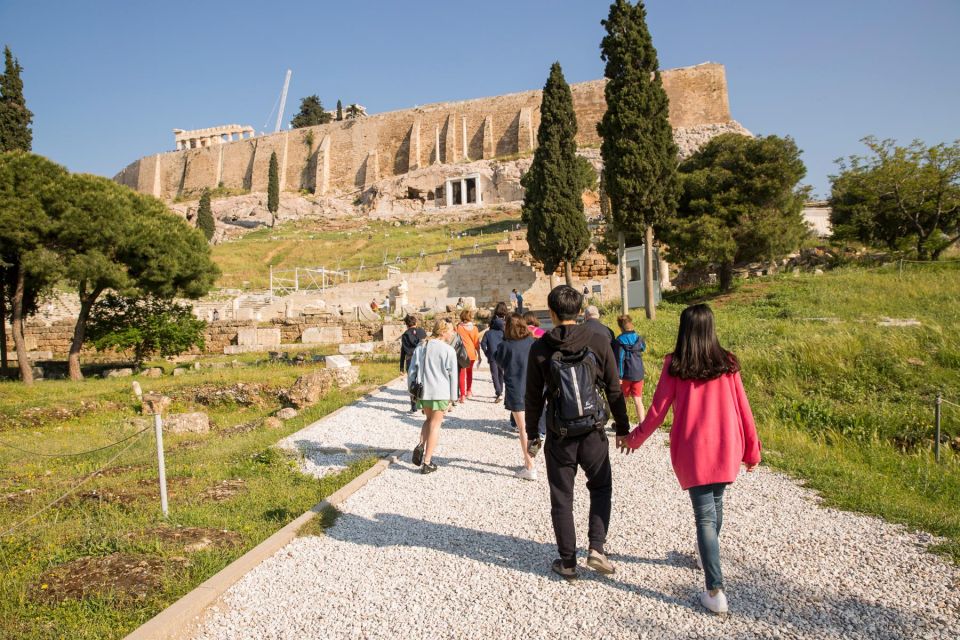
Comparing ancient Athenian democracy with contemporary democratic systems reveals both continuities and divergences in their structural elements and underlying principles.
The core notion of ‘rule by the people‘ persists, yet the specific mechanisms of citizen participation have evolved. While ancient Athens empowered all male citizens to directly vote on policies, modern democracies often rely on representative systems and indirect forms of public input.
Plus, ancient Athens excluded women, slaves, and foreigners from the political process – a glaring flaw that contrasts sharply with the universal suffrage championed by contemporary liberal democracies.
Though the foundations of democracy remain, the practical application and the scope of political rights have undergone significant transformations over centuries of social, economic, and cultural change.
Frequently Asked Questions
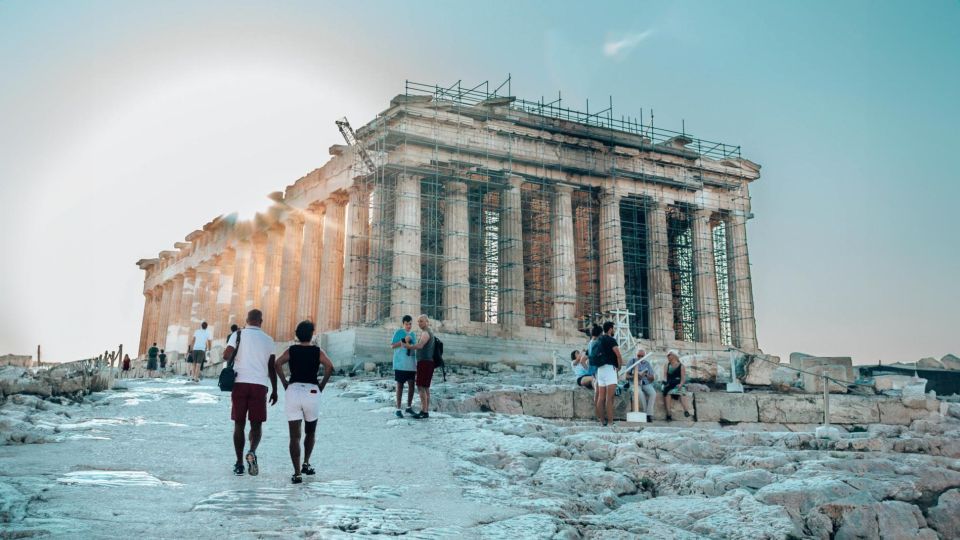
Are There Any Restrooms Available During the Tour?
Yes, there are restroom facilities available during the tour. Visitors can typically find restrooms at the main sites and landmarks along the tour route, providing convenient access throughout the experience.
Do the Guides Speak Any Languages Other Than English and French?
The tour guides speak English and French, as mentioned in the tour overview. It’s unclear if they speak any other languages, so it’s best to inquire about additional language capabilities when booking the tour.
Is There a Dress Code or Specific Attire Required for the Tour?
There’s no official dress code for this tour, but visitors are advised to wear comfortable walking shoes and clothes suitable for the weather. Light, breathable fabrics are recommended as the tour involves extensive walking outdoors.
Can We Take Photos During the Tour?
Visitors are generally allowed to take photos during tours, but they should follow any specific instructions from the guide. Photography is usually permitted in public areas, though restrictions may apply in certain historical or sensitive sites.
Is There an Option to Extend the Tour Duration?
Yes, there’s often an option to extend the duration of a tour. Many tour providers offer flexible itineraries that allow customers to customize the length and content to suit their preferences and needs.
Recap
The Acropolis and Agora tour provides a captivating exploration of the birthplace of democracy.
Participants gain insights into the political, economic, and social significance of these iconic landmarks, enhancing their understanding of Athenian democratic principles and their enduring influence on modern governance.
This small group tour offers a unique opportunity to take in the cradle of Western civilization and the foundations of democratic ideals.


